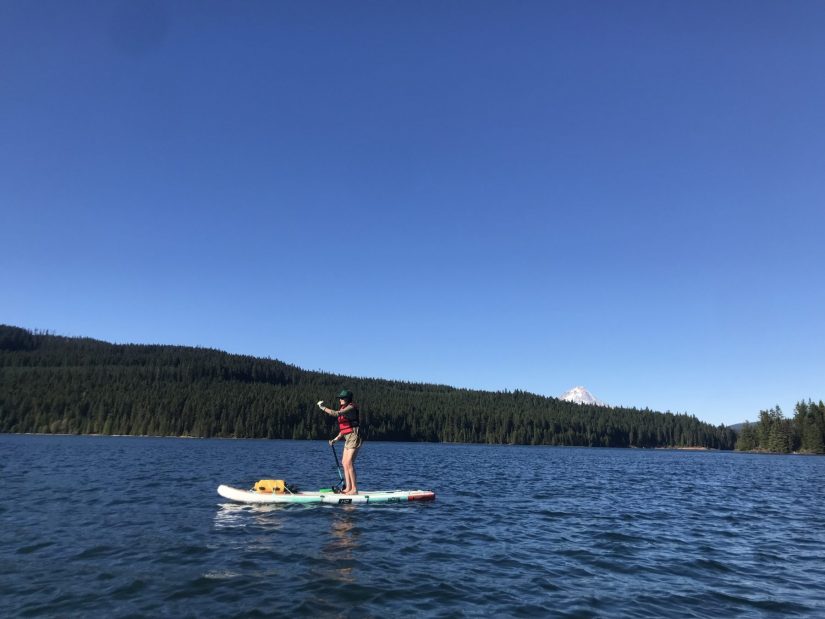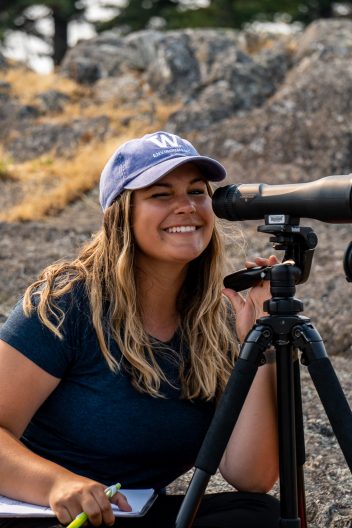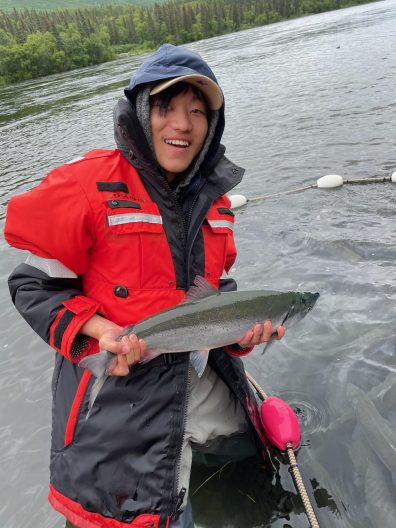Spring 2022 Graduation
Congratulations to all our graduates!
To celebrate this year’s class, we have posted photos and anecdotes of our graduates on this page. Click a name below to expand and learn more about them!
Honoring College of the Environment Class of 2022 Graduates – 2022 College Graduation Gift
Congratulations to the Class of 2022! In appreciation of their contributions to enriching the College of the Environment community, the College is honoring our graduates through funding a project jointly with the Campus Sustainability Fund (CSF).
Based on the recommendation of our Student Advisory Council and a vote by our graduating students, the College will help fund the Fresh Food Recovery for the UW Food Pantry project. The UW Food Pantry is a student run organization that provides food to UW students, staff, and faculty at no cost to support those who are facing food insecurity. They provide produce and non-perishable food items and are currently expanding their efforts to glean food from campus dining locations and the UW Farm. This allows the Food Pantry to save food that would otherwise be thrown away due to its sell-by date. Through this initiative, over 5,000 pounds of ready to eat campus food was diverted from the land fill in a year. With our support and the Campus Sustainability Fund, the Food Pantry will purchase a new refrigerator that increases the storage for more fresh food and healthy nutritious options for community members and will continue to fund a gleaning coordinator position. We are excited for the expansion of the Food Pantry and the opportunity to increase the sustainability and well-being of our Husky community.
Bachelor of Science
Courtney Carpenter
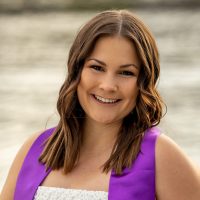 Capstone
Capstone
The management implications of different trawling locations in Central Puget Sound being used to compare population trends of five fish species
I analyzed trawl data from 2008-2019 at multiple locations in Central Puget Sound to determine if similar fish population trends appeared in different sampling methods.
Adviser
Thomas Quinn
What was your favorite FISH class and why?
My favorite FISH class was FISH 323 – Conservation and Management of Aquatic Resources. This class was my favorite because I was introduced to the management side of fisheries and helped me define my career path.
What is your go-to comfort food?
Pasta
What kind of things do you like to do when you’re not being a SAFS student?
I loved exploring Seattle, both the city and the natural areas.
Do you have any accomplishments and activities while at SAFS you would like to highlight?
In Autumn 2021, two of my peers and I published our Friday Harbor Labs research on harbor seals in FieldNotes as the featured article.
Who would you like to thank/recognize and why?
I would like to thank my parents for fostering my love of the ocean and supporting me throughout my education. I would also like to thank Sam Scherer for always having helpful guidance throughout my time at SAFS.
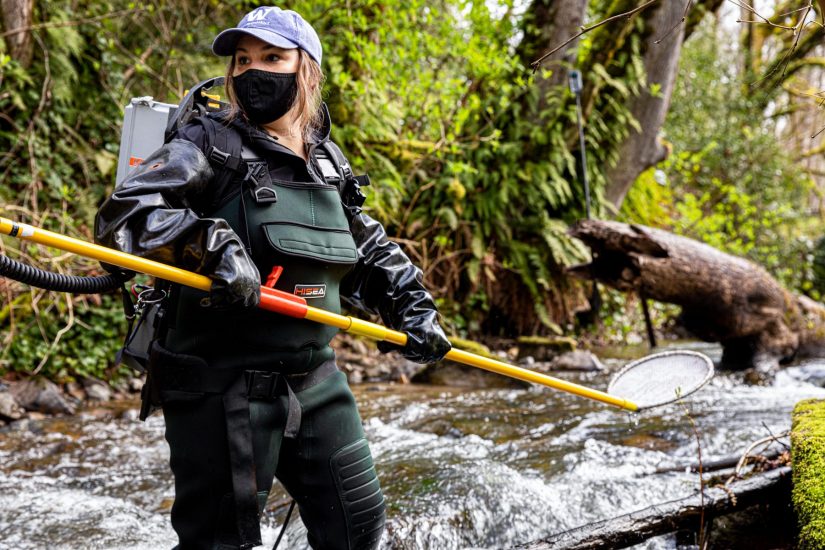
Helen Casendino
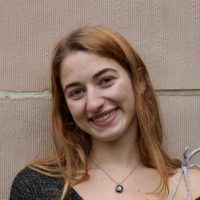 Capstone
Capstone
Using environmental DNA to compare aquatic insect community among creeks of Bellingham, WA
For my senior capstone, I used environmental DNA (eDNA) collected from multiple creeks in the Bellingham area to understand how the aquatic insect community differed among sites. Insects are critical to the functioning of freshwater ecosystems, and certain characteristics of an insect community offer insight about the health of its surrounding environment. Thus, the continual development/testing of efficient insect monitoring practices such as eDNA sampling can lead to better management of freshwater ecosystems.
Advisers
Dr. Ryan Kelly, Dr. Erin D’Agnese, Dr. Elizabeth Allan
What is your best/favorite memory during your time in SAFS?
I loved working with my peers to design experiments in FISH 270–it was a great exercise in collaboration, creativity and patience under constraints. This class also gave me a community at SAFS, making a huge campus feel comforting and welcoming.
Who would you like to thank/recognize and why?
I am immensely grateful for the encouragement and mentorship given by Ryan Kelly, Erin D’Agnese and Elizabeth Allan, which has done much to prepare me for next steps post-graduation. Miranda Roethler and Julieta Martinelli also provided a wealth of guidance and friendship, while Tim Essington and Chelsea Wood made frequent efforts to support my academic/career journey. It is because of them, and a loving network of family and friends, that I have had the chance to thrive here at SAFS.
Do you have a favorite quote/saying/etc?
“Life is short and art is long; opportunity fleeting, experiment treacherous, judgment difficult.” – Hippocrates
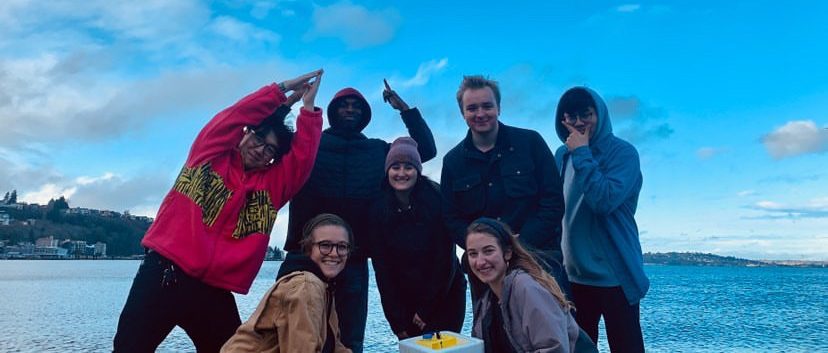
Charlotte Gerzanics
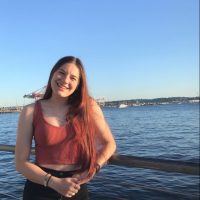 Capstone
Capstone
An analysis of heavy metal contaminants in Olympia oysters (Ostrea lurida) from Holocene oyster beds and comparison to present-day samples.
Advisers
Julieta Martinelli & Jacqueline Padilla-Gamiño
What kind of things do you like to do when you’re not being a SAFS student?
Hiking
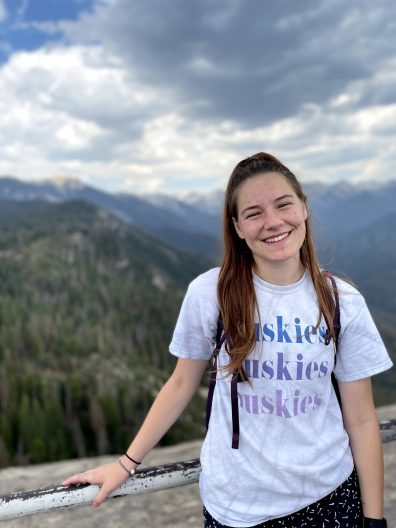
Keng Moua
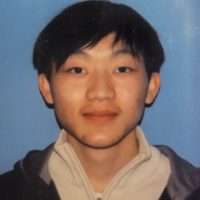 Capstone
Capstone
The effect of human population density on sockeye salmon
Do sockeye sockeye salmon show trends of decreasing in places with higher concentrations of humans? I looked into multiple sockeye stocks (across the Pacific west coast) and their trends dating back from 1980 to 2010. My goal was to compare this against the surrounding stock’s human population trends.
Adviser
Ray Hilborn
What is your best/favorite memory during your time in SAFS?
The short-lived fishery labs (pre-covid) and the beautiful views walking to the SAFS building from the Red Square.
What was your favorite FISH class and why?
Fish 497 Management of Salmon (Special Topics Course), because it was in Alaska where I was first introduced to application of salmon management and R-coding, a great resource.
What is your go-to comfort food?
Carne-asada fries, Wingstop
What kind of things do you like to do when you’re not being a SAFS student?
Play bass, fishing, hunting
Who would you like to thank/recognize and why?
Ray Hilborn, he deals with my procrastination and guided my capstone project with great effort. Cool guy, but wish I got to know him more outside of my capstone advising sessions.
Do you have a favorite quote/saying/etc?
“Life is fragile.” – Thyself
Joe Pollastro
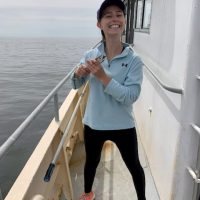 Capstone
Capstone
Temporal Variation in Species Abundance through Episodic Hypoxia in the Hood Canal Basin
I am looking at eight species over the course of 22 years and looking at changes in abundance with a focus on changes in around hypoxic events.
Adviser
Gregory Jensen
What is your best/favorite memory during your time in SAFS?
Tidepooling at Alki Beach at night during a wind storm with friends.
What was your favorite FISH class and why?
FISH311 Biology of Fishes. The lab was all hands on dissections and identifying species, it was really fun!
Who would you like to thank/recognize and why?
Luke Tornabene and Sam Scherer for always supporting me inside and outside the classroom.
Debbie Viona
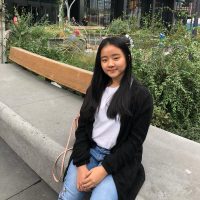 Capstone
Capstone
Population Trend Comparison of Kemp’s Ridley, Olive Ridley, and Flatback Turtles
This study analyzes the difference in the population trend of Kemp’s Ridley, Olive Ridley, and Flatback Turtles. These turtles are all located in different geographical areas, I look for possible explanations that are causing the varying trends.
Adviser
Ray Hilborn
What is your best/favorite memory during your time in SAFS?
Exploring different classes that are interesting and interacting with other fellow fisheries students. The faculty here in SAFS is extremely friendly too, they are all very willing to help you through your academic journey.
What was your favorite FISH class and why?
I have a couple of classes that I enjoy! FISH312, the field trips allows us to bond with other fellow fish students, which has been a fun experience for me. FISH310 is also fun, I get to learn a lot different fish taxa that I have never heard of and the class is engaging. FISH406 (parasite ecology) is the class that I would recommend, it has taught me a lot of new perspectives on parasites and how it applies in the real-world!
What is your go-to comfort food?
Sushi
Who would you like to thank/recognize and why?
I wanted to thank Samantha Scherer for being the best advisor and helped me through this journey, especially during the pandemic. I would also like to thank Ray Hilborn that has guided me through my capstone project.
Sicheng Wang
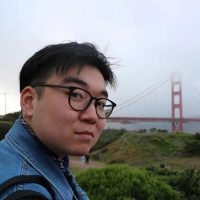 Capstone
Capstone
It’s Delicious! Removal of microplastics by reef-building corals under different flow velocities
Microplastics are plastic particulates less than 5mm in size. Some microplastics are released into the environment directly, while others come from larger plastics that have been broken down. These microplastics interact with the environment in several ways. We set out to determine how corals can interact with different types of microplastics in the ocean under different flow velocities. Through this study, we hope to pave the path to highlight how corals can provide an ecosystem service by trapping microplastics in reef environments.
Adviser
Jacqueline Padilla-Gamiño
What is your best/favorite memory during your time in SAFS?
Doing my capstone project with Jeremy Axworthy in the PBB building.
What was your favorite FISH class and why?
I have a couple of classes that I enjoy! FISH312, the field trips allows us to bond with other fellow fish students, which has been a fun experience for me. FISH310 is also fun, I get to learn a lot different fish taxa that I have never heard of and the class is engaging. FISH406 (parasite ecology) is the class that I would recommend, it has taught me a lot of new perspectives on parasites and how it applies in the real-world!
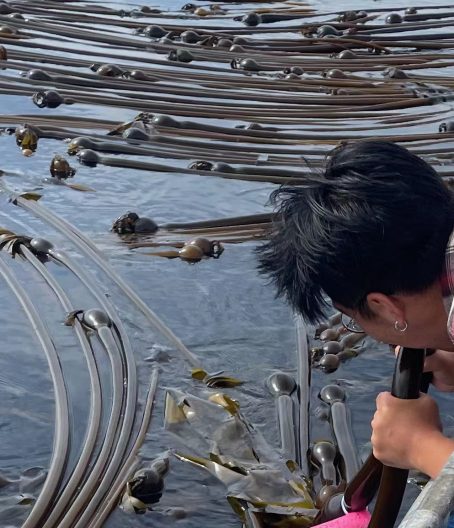 What is your go-to comfort food?
What is your go-to comfort food?
Lamb hotpot!
What kind of things do you like to do when you’re not being a SAFS student?
I like to keep various species of saltwater and freshwater fish and a plethora of plants such as aroids, orchids, carnivorous plants and caudiciforms.
Who would you like to thank/recognize and why?
I would like to thank Jeremy Axworthy for being my mentor for my capstone project and just being a really cool person to work with. Additionally, I would like to thank Jacqueline Padilla-Gamino for offering me this precious opportunity to work with her lab on my capstone project, and providing valuable feedback regarding plans after college. Lastly, I would like to thank Jose Guzman for giving me overall career guidance and Luke Tornabene for his spectacular teaching in FISH 311. This moment would have not been possible without the welcoming and intriguing experiences provided by all of you.
Do you have a favorite quote/saying/etc?
Miles Morales – “When will I know I’m ready?”
Peter B. Parker – “You won’t. It’s a leap of faith. That’s all it is, Miles. A leap of faith.”
Spider-Man: Into the Spider-Verse
Master of Science
 Capstone
Capstone
It’s Delicious! Removal of microplastics by reef-building corals under different flow velocities
Microplastics are plastic particulates less than 5mm in size. Some microplastics are released into the environment directly, while others come from larger plastics that have been broken down. These microplastics interact with the environment in several ways. We set out to determine how corals can interact with different types of microplastics in the ocean under different flow velocities. Through this study, we hope to pave the path to highlight how corals can provide an ecosystem service by trapping microplastics in reef environments.
Adviser
Jacqueline Padilla-Gamiño
What is your best/favorite memory during your time in SAFS?
Doing my capstone project with Jeremy Axworthy in the PBB building.
What was your favorite FISH class and why?
I have a couple of classes that I enjoy! FISH312, the field trips allows us to bond with other fellow fish students, which has been a fun experience for me. FISH310 is also fun, I get to learn a lot different fish taxa that I have never heard of and the class is engaging. FISH406 (parasite ecology) is the class that I would recommend, it has taught me a lot of new perspectives on parasites and how it applies in the real-world!
 What is your go-to comfort food?
What is your go-to comfort food?
Lamb hotpot!
What kind of things do you like to do when you’re not being a SAFS student?
I like to keep various species of saltwater and freshwater fish and a plethora of plants such as aroids, orchids, carnivorous plants and caudiciforms.
Who would you like to thank/recognize and why?
I would like to thank Jeremy Axworthy for being my mentor for my capstone project and just being a really cool person to work with. Additionally, I would like to thank Jacqueline Padilla-Gamino for offering me this precious opportunity to work with her lab on my capstone project, and providing valuable feedback regarding plans after college. Lastly, I would like to thank Jose Guzman for giving me overall career guidance and Luke Tornabene for his spectacular teaching in FISH 311. This moment would have not been possible without the welcoming and intriguing experiences provided by all of you.
Do you have a favorite quote/saying/etc?
Miles Morales – “When will I know I’m ready?”
Peter B. Parker – “You won’t. It’s a leap of faith. That’s all it is, Miles. A leap of faith.”
Spider-Man: Into the Spider-Verse
Jennifer Gardner
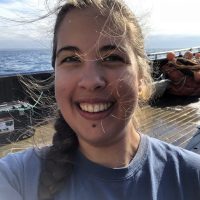 Thesis
Thesis
Systematics of Snailfishes (Family Liparidae): Description of Two New Species from the Aleutian Islands and Investigation of the Utility of Exon Capture Techniques
Snailfishes are a really interesting group of fishes that live all the way from the intertidal to the deepest ocean trenches. My work focuses on some small snailfishes found in the Aleutian Islands of Alaska that were previously unknown to western science. I also looked at the usefulness of a relatively new type of genetic sequencing method to help understand the relationships among snailfish species.
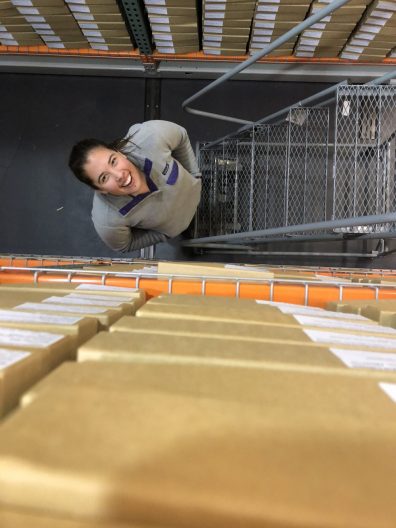
Adviser
Luke Tornabene
What was your favorite FISH class and why?
I have had an absolute blast being a TA for FISH 311 Biology of Fishes over the years. It is so fun to get to introduce students to the weird, wide world of fishes and to show them just how much biodiversity there is among them. It’s been fun to teach it many different times, help improve the way the lab portion of the class is run, and get to see students get excited each and every time we do a fun activity.
What is your go-to comfort food?
Cheese+starch. Mac and cheese? Yes please. Quesadilla? YUM. Grilled Cheese? Always. Literally any combo of cheese and starch.
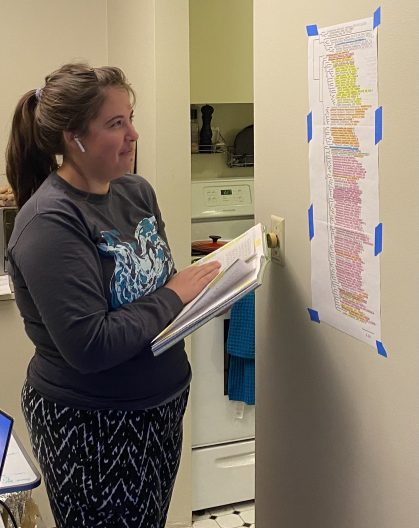 What kind of things do you like to do when you’re not being a SAFS student?
What kind of things do you like to do when you’re not being a SAFS student?
I like to knit and crochet, read fantasy and sci fi, and get outside via hiking, backpacking, and rock climbing.
Do you have any accomplishments and activities while at the SAFS you would like to highlight?
During my time at SAFS I helped put together a graduate seminar course titled “The Dark Side of Hot Topics: The Settler-Colonial and White Supremacist History of Aquatic and Fishery Sciences”. Along with two other SAFS grad students and an excellent cohort of students we worked together to expose the settler-colonial and racist history of many aquatic and fishery science sub-disciplines represented in our department, dissect these historical, discriminatory framings, and examined how the present context of these framings influences the field today. Additionally, we learned from early career researchers that are diverse and/or working towards equitable and inclusive outcomes in our field. I am still working with the curriculum committee, SAFS admin, and my the other grad student leads of the class to make the class a permanent fixture at SAFS.
Who would you like to thank/recognize and why?
I’d like to thank my family for always being supportive and listen to me talk excitedly about my research even if they have no idea what I’m talking about. I’d like to thank the SAFS Grad community for being amazing, my time at SAFS wouldn’t have been the same without you. Thanks to my partner for always being there for me and supporting me through some of the hardest work I’ve ever done.
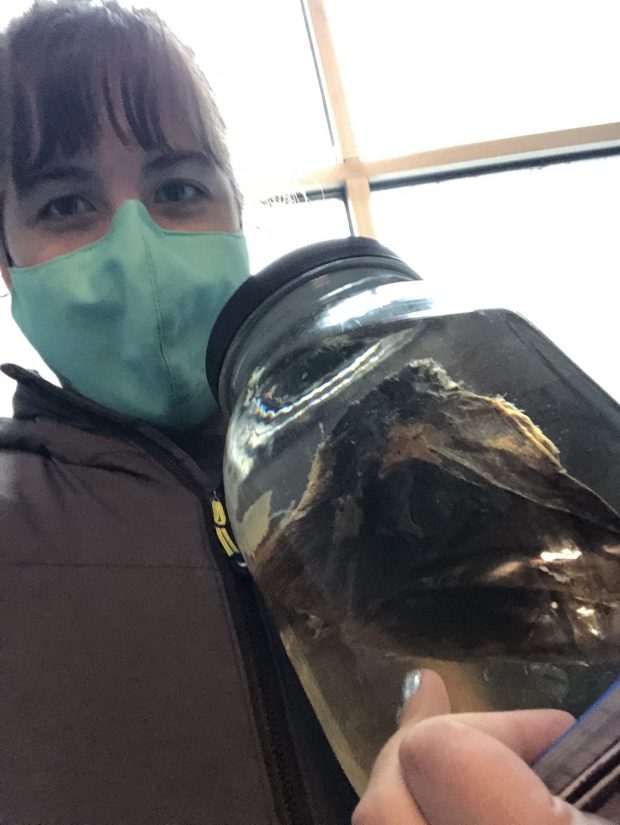
Sam Ghods
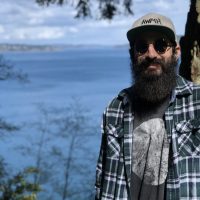 Thesis
Thesis
Investigating the features that facilitate sexual parasitism in male Anglerfishes (Teleostei, Ceratioidei)
The sexual dimorphism seen in deep-sea anglerfishes is the most extreme example amongst vertebrates, where only females have the characteristic lure. Male anglerfishes are fractional in size relative to the female and instead develop a specialized jaw called the denticular apparatus that is used to attach to females for reproduction. My thesis examined the development of male deep-sea anglerfishes to better understand the origin of the denticular apparatus and describe the transformation these fishes undergo.
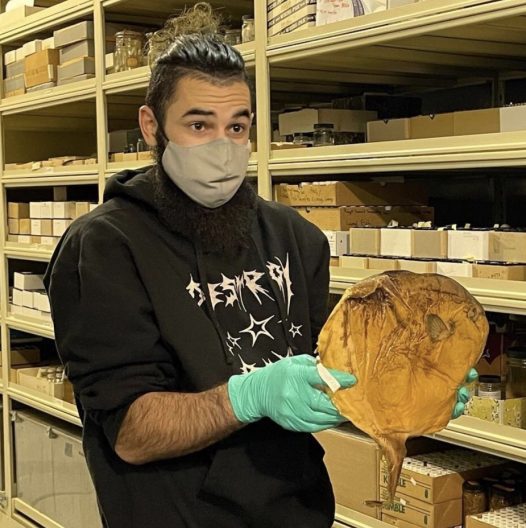 Adviser
Adviser
Luke Tornabene
What is your best/favorite memory during your time in SAFS?
It’s hard to pick just one but I think the SAFS Holiday Parties are some of my favorite memories, it’s just great to see everyone come together and have fun!
What was your favorite FISH class and why?
My favorite class has to be Fish 311 Biology of Fishes. This is the class that introduced me to the wide world of fishes and through this class I began volunteering and ultimately working at the amazing UW Fish Collection where I’ve spent the last six years.
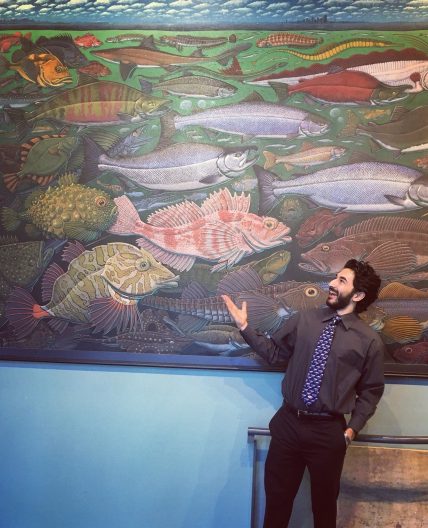 What is your go-to comfort food?
What is your go-to comfort food?
Tonkotsu ramen
What kind of things do you like to do when you’re not being a SAFS student?
Play guitar and sing, play basketball, golf, and of course I love to fish
Who would you like to thank/recognize and why?
I absolutely need to thank Katherine Maslenikov and Ted Pietsch for welcoming me into the Fish Collection family and helping me flourish as a budding ichthyologist. I also need to thank Sam Scherer and Amy Fox for keeping me on track and constantly reminding me of all the things I forgot to sign up for or fill out. And of course, a huge thanks to the entire SAFS community for being my home away from home!
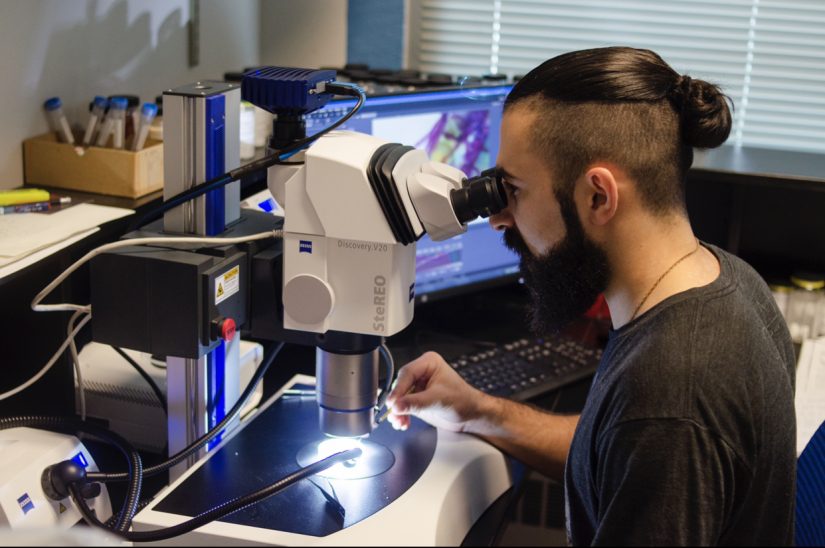
Corinne Klohmann
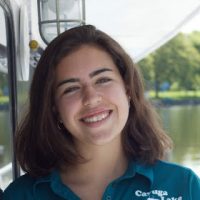 Thesis
Thesis
The pathogen filtration capability of eelgrass (Zostera marina)
As bacterial pollution continues to impact humans and marine life, it is important to think of creative solutions to this problem. My research explores the ability of the temperate seagrass (eelgrass) to remove bacterial pathogens from the water column using Enterococcus assays and environmental DNA.
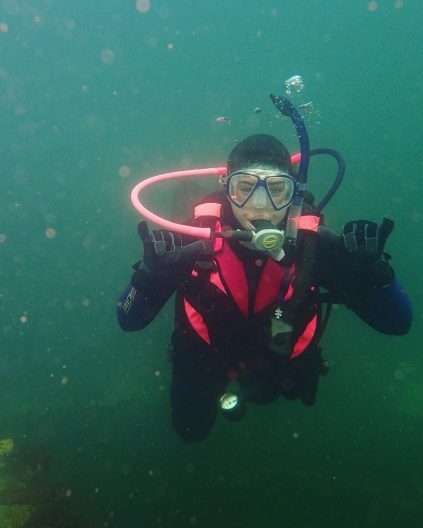 Adviser
Adviser
Jacqueline Padilla-Gamiño
What is your best/favorite memory during your time in SAFS?
It’s almost too hard to pick just one memory but the highlights were definitely the graduate student retreats at Friday Harbor Labs, the SEAS Open House, and the SAFS holiday parties!
What is your go-to comfort food?
Annie’s mac and cheese – especially after a long day of field work.
Do you have any accomplishments and activities while at the SAFS you would like to highlight?
I’d like to plug SEAS! It’s been a pleasure to serve on the board and as the chair over the past two years.
Who would you like to thank/recognize and why?
I’d like to say a huge thank you to my friends and family, I wouldn’t have made it through grad school without their constant support and encouragement. Thank you to the JPG lab for pushing me to be the best scientist and for helping me accomplish more then I thought possible in the last three years. A final thank you to the SAFS community, it will be tough to find another group of such inspiring people!
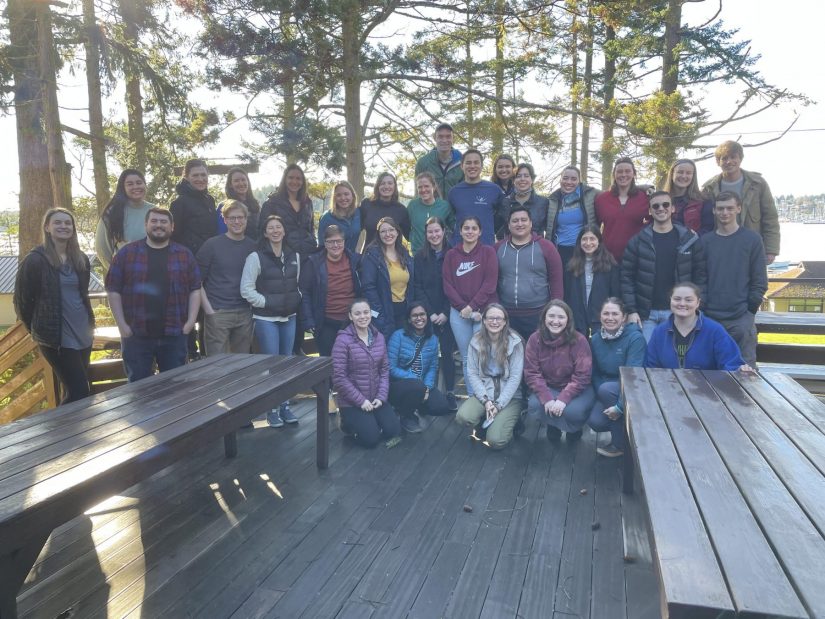
Kelly Mistry
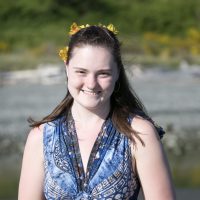 Thesis
Thesis
Fish in Space: Estimating groundfish distribution in the Gulf ofAlaska for management apportionment by subregion
My thesis work focused on improving statistical modeling methods used to estimate the spatial distribution of groundfish species throughout the Gulf of Alaska, for use in commercial harvest management of those species.
Adviser
Mark Scheuerell
What is your go-to comfort food?
Mac ‘n Cheese
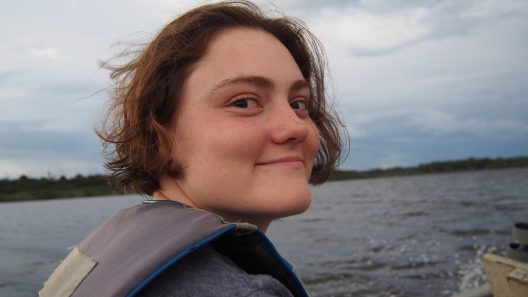 What kind of things do you like to do when you’re not being a SAFS student?
What kind of things do you like to do when you’re not being a SAFS student?
Quilting, sharing my dog with those who need animal time
Who would you like to thank/recognize and why?
My amazing lab mates and advisor for creating a supportive work environment, especially since the lab was brand new and we had to build the lab culture during a pandemic
Do you have a favorite quote/saying/etc?
“If you have come here to help me, you are wasting your time. But if you have come because your liberation is bound up with mine, then let us work together.” – Lilla Watson
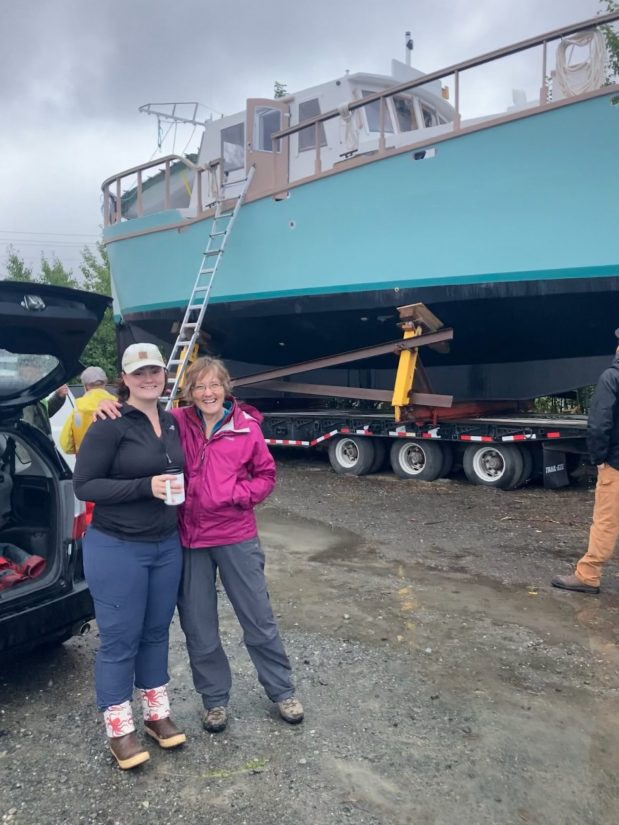
Beka Stiling
Thesis
Fish resource use and habitat coupling in lake ecosystems
My work identified relative fish use of resources derived in littoral (edge), pelagic (open water) and terrestrial in freshwater lakes. In addition I analyzed fish community and environmental drivers of relative resource use in fishes locally globally.
Adviser
Gordon Holtgrieve and Julian Olden
What is your best/favorite memory during your time in SAFS?
My favorite memory was traveling to Salt Lake City with the Olden Lab to addend the Society of Freshwater Science 2019 annual meeting. I appreciated the growth opportunity to share my research, the chance to learn and connect with ecologists from around the world, and a meaningful several days of bonding with labmates.
What was your favorite FISH class and why?
FISH 514 with Sarah Converse and Data Science with Mark Scheuerell. Both classes were high-yield and also allowed me to get to know more professors on SAFS all-star faculty roster.
What is your go-to comfort food?
Cheese
What kind of things do you like to do when you’re not being a SAFS student?
Backpack
Who would you like to thank/recognize and why?
Gordon Holtgrieve and Julian Olden for being outstanding advisors. Together they were the best advising duo a student could ask for, continually challenging me and supporting me. With their guidance I learned a ton and left graduate school feeling proud and equipped for the future. Also, my family – husband Bob and my parents Rod and Ruth – for cheering me on the providing logistical support.
Doctor of Philosophy
Lindsay Alma
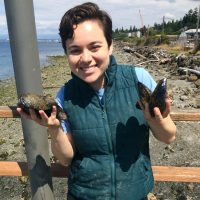 Dissertation
Dissertation
Phenotypic Plasticity in Economically and Ecologically Important Bivalves in Response to Changing Environments
Recent shifts in the environment such as temperature, ocean acidification, hypoxia, and extreme environmental variation have greatly affected bivalve physiology, reproduction, and survival across multiple lifestages. Environmental data was coupled with a multi-method investigation of field and laboratory acclimatized bivalves. Our findings indicate that, depending on abiotic factors, bivalves exhibit a high capacity to express phenotypes and show evidence of parental carryover effects.
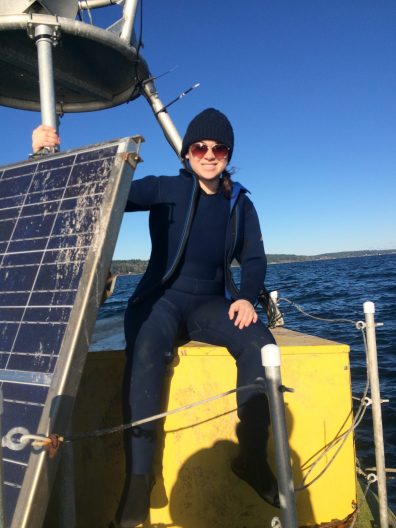
Advisers
Jacqueline Padilla-Gamiño
What is your best/favorite memory during your time in SAFS?
I really loved going around each year around the holidays and decorating all the fish in the building. We <3 party fish!
What was your favorite FISH class and why?
I love TA-ing FISH 310, Shellfish (invertebrate) biology. Preparing labs for this class is always very fun for me, because it involves lots of live animals.
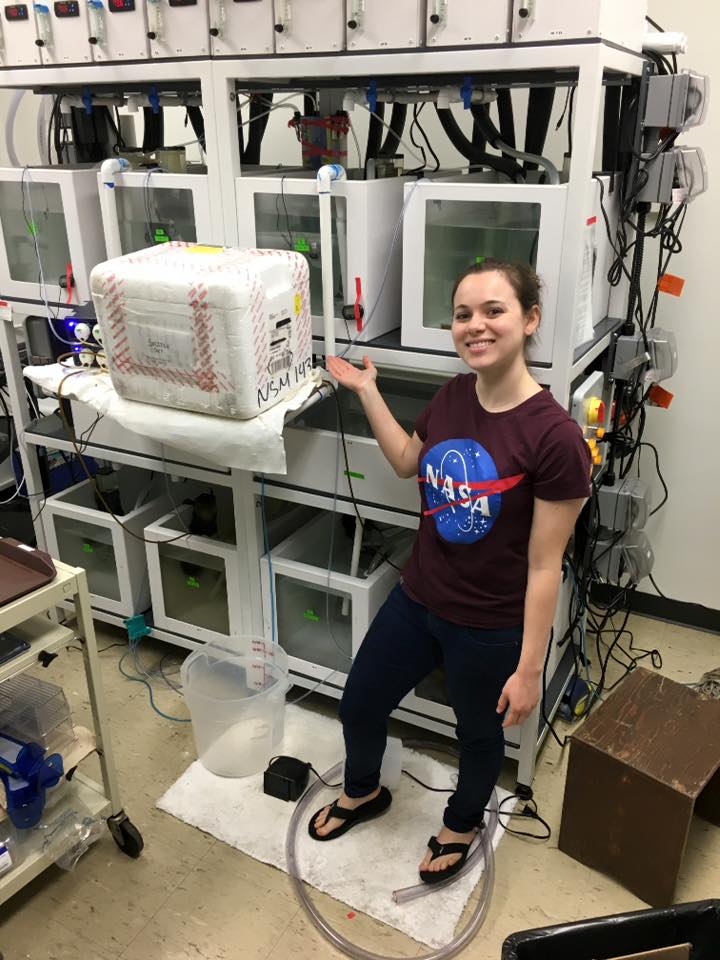 What is your go-to comfort food?
What is your go-to comfort food?
Thai food
What kind of things do you like to do when you’re not being a SAFS student?
Tend to plants, thrift shop, crafts, socialize
Do you have any accomplishments and activities while at SAFS you would like to highlight?
I TA-ed 12 quarters. Mentored 22 young scientists. I planned the SAFS Grad Student Retreat 6 years in a row, and SAFS Spring Picnic for 3 years.
Who would you like to thank/recognize and why?
I would like to express the deepest appreciation toward my advisor Jacqueline Padilla-Gamiño, and my committee Dr. Gordon Holtgrieve, Dr. Steven Roberts, Dr. Paul McEhlany, and Parker MaCcready. I would like to thank my lab mates, collaborators, and all the interns that helped me along the way. Finally, I want to thank my mom and all my wonderful friends who helped me through this degree. I could not have made it through without you.
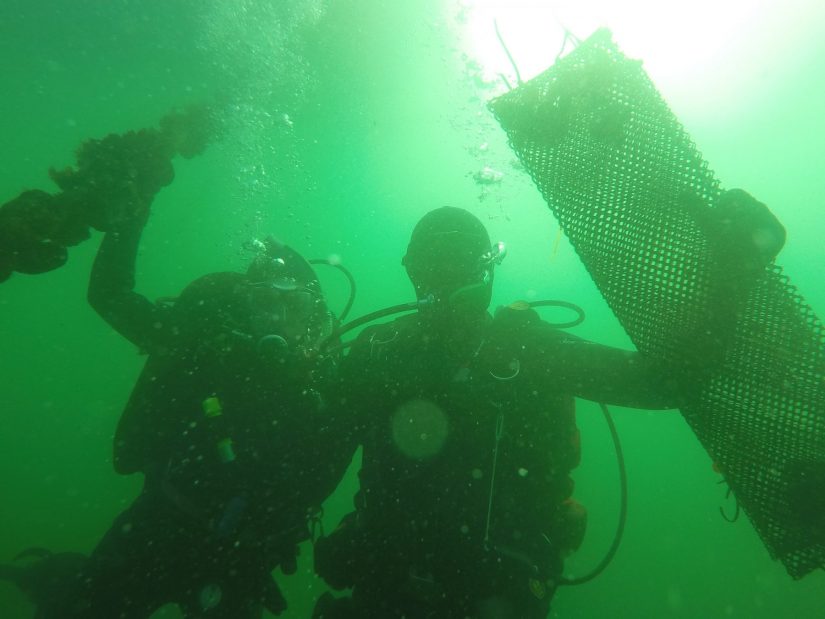
Megan Feddern
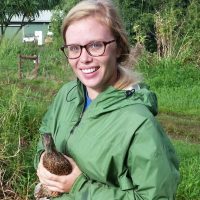 Dissertation
Dissertation
Applied ecosystem chemistry: linking biogeochemical and physiological processes to ecological interactions
This dissertation examined the relationships between the environment (sea surface temperature, upwelling) and food webs using chemical tracers (stable isotopes). We examined the chemical composition of harbor seal and Steller sea lion skulls from museums to understand how environmental conditions and prey availability have impacted food webs in the northeast Pacific Ocean (Washington to Bristol Bay AK) over the past 100 years. We also examined how assumptions and applications of stable isotope analysis can impact research conclusions, specifically related to marine derived nutrients in plants and soils, and the impact of tissue incorporation rates on trophic position estimates.
Advisers
Gordon Holtgrieve
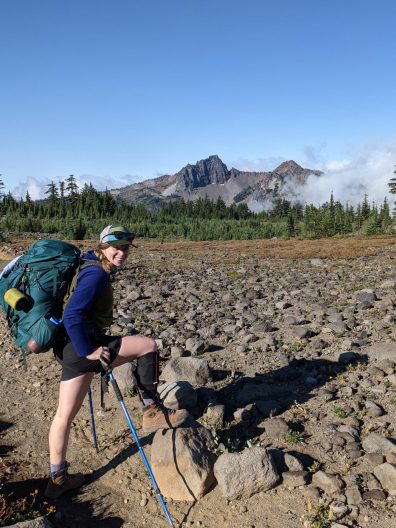 What is your best/favorite memory during your time in SAFS?
What is your best/favorite memory during your time in SAFS?
Spending time with the Holtgrieve lab in the field, the lab, and our science camp week with the Holtgrieve-Alin family in Mazama! All the time spent celebrating achievements both in and out of SAFS with the wonderful graduate student community.
What was your favorite FISH class and why?
Ecological Modeling with Tim and Data Science with Mark. Both courses gave me a foundational skills that I am constantly revisiting and applying!
What is your go-to comfort food?
Cheese, goldfish
What kind of things do you like to do when you’re not being a SAFS student?
Exploring outside particularly while backpacking, skiing, or snowboarding. Creating art for friends and family.
Who would you like to thank/recognize and why?
My incredibly supportive advisor Gordon, for his his encouragement and enthusiasm, and who may be even more proud of my research than I am! Eric Ward for always finding time to teach me and help me tackle analytical problems. My brother and Cass, who always hosted me when I needed a vacation! My parents and grandmother for cheering me on. My wonderful friends in Seattle and beyond for sharing joy and keeping me grounded!
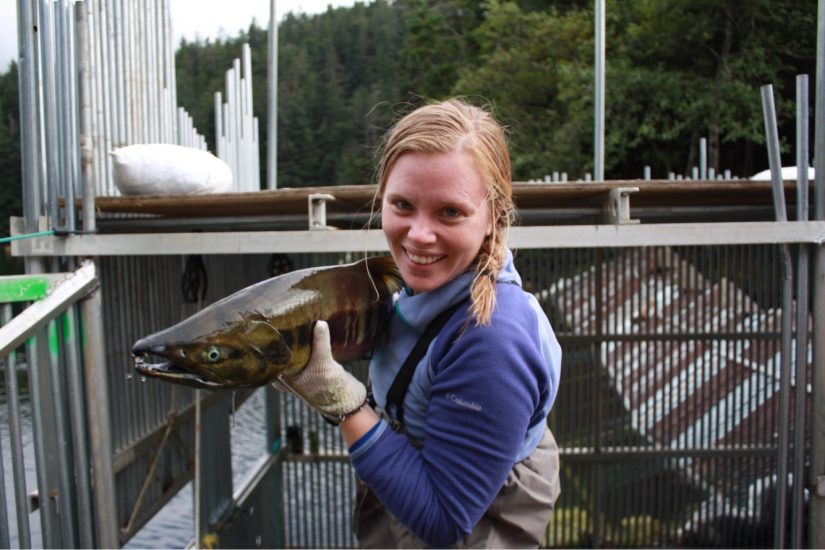
Jessie Hale
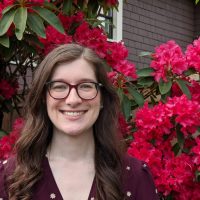 Dissertation
Dissertation
Foraging Ecology and Population Dynamics of Northern Sea Otters (Enhydra lutris kenyoni) in Washington State
The depletion and subsequent recovery of marine mammal populations after overharvest presents biologists with natural experiments to study their ecology, including drivers of their population dynamics and the function of the species in the ecosystem. My dissertation focuses on the recovery of a translocated population of sea otters (Enhydra lutris kenyoni) in Washington State. The overall aim of my dissertation was to utilize the natural experiment of sea otter translocation to Washington State to understand drivers of sea otter population dynamics as well as the ecological role that sea otters play in Washington State.
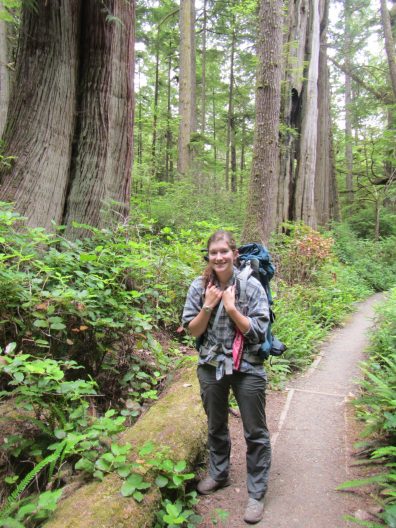 Adviser
Adviser
Kristin Laidre
What is your best/favorite memory during your time in SAFS?
Field work on the Washington coast
What is your go-to comfort food?
Raisin bread toast
What kind of things do you like to do when you’re not being a SAFS student?
Listen to audiobooks, be outside, pet dogs.
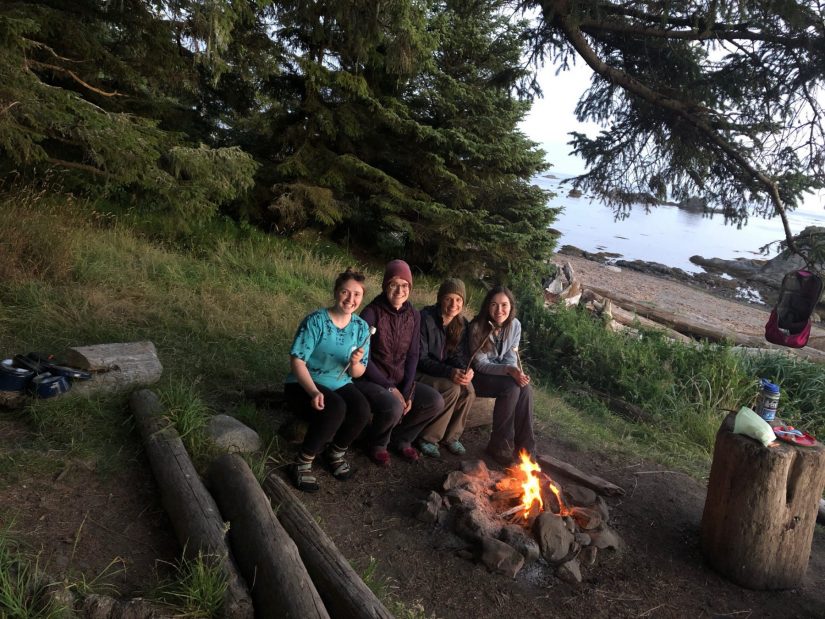
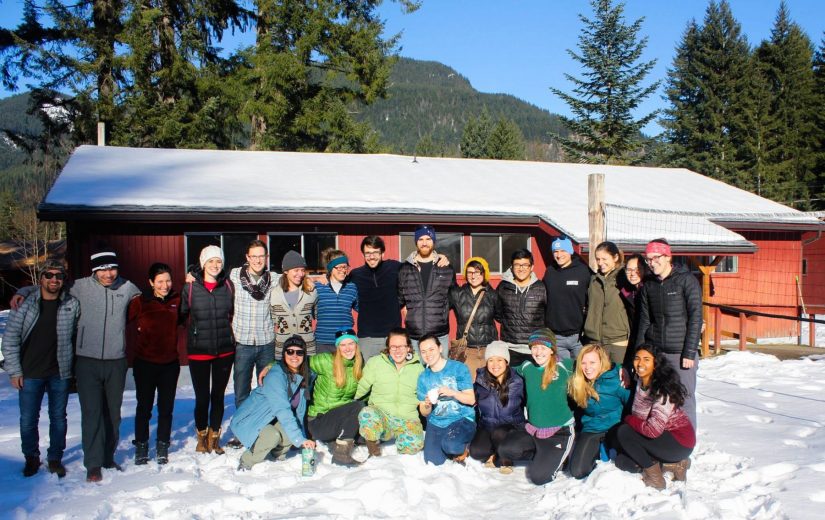
Samuel May

Dissertation
Drivers and Fitness Consequences of Dispersal and Structure in Wild Sockeye Salmon Populations (Oncorhynchus nerka)
This thesis investigated the ecological, behavioral, and phenotypic factors that contribute to dispersal, gene flow, and population structure both within and between wild populations of sockeye salmon. We used a molecular-based pedigree of nearly 10,000 individuals, spanning two generations, two populations, and 14 years of sample collections to examine fine-scale wild population dynamics related to individual fitness, population productivity, and metapopulation stability.
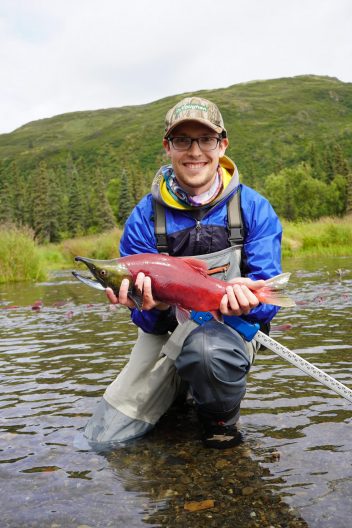 Advisers
Advisers
Kerry Naish
What is your best/favorite memory during your time in SAFS?
The community of supportive, engaged, and adventurous SAFS grad students – who took me on countless adventures in Washington and beyond.
What kind of things do you like to do when you’re not being a SAFS student?
Relaxing near any body of water with good friends and good food
Who would you like to thank/recognize and why?
My family, friends, the SAFS grads community, and academic mentors/collaborators
Amanda J. Warlick
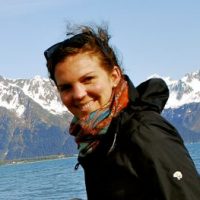 Dissertation
Dissertation
Understanding the effects of environmental variability on demography in species with complex life histories through integrated population modeling
My work has included developing integrated population models to understand how environmental conditions affect the rates at which marine mammals and seabirds reproduce and survive. Demographic information such as this can inform the development of management measures for species or populations in need of conservation intervention.
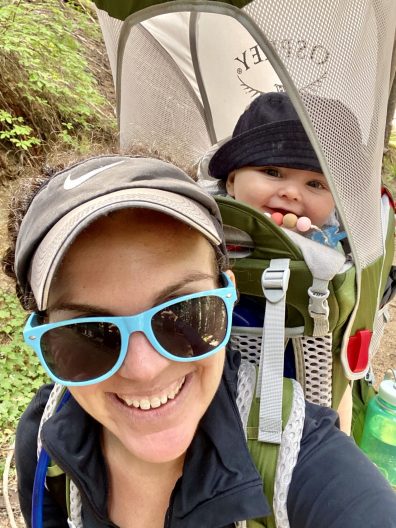 Advisers
Advisers
Sarah Converse
What is your best/favorite memory during your time in SAFS?
My favorite memories include outdoor adventures with my fellow lab mates.
What is your favorite FISH class and why?
I couldn’t possibly choose my favorite class!
What is your go-to comfort food?
Brie, grapes, and ice cream.
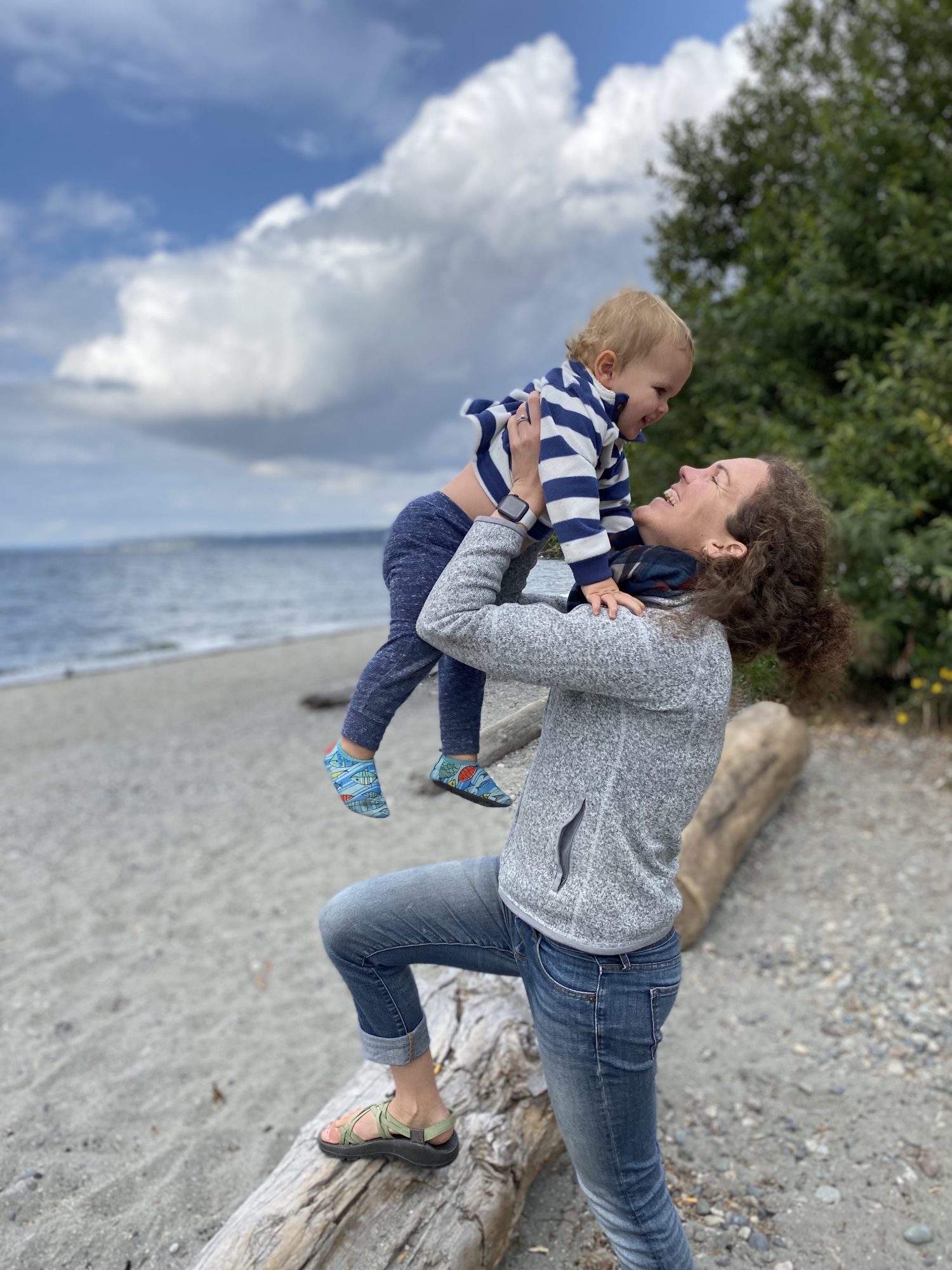 What kind of things do you like to do when you’re not being a SAFS student?
What kind of things do you like to do when you’re not being a SAFS student?
I love sharing my awe of nature with my son (aka romping in streams, playing in the sand, searching for sea lions, etc.)
Who would you like to thank/recognize and why?
My lab mates for repeatedly encouraging me, my advisor for confidently believing in me, my family for constantly supporting me, and my child and fur-baby for endlessly seeing the best version of me.
Do you have a favorite quote/saying/etc?
Success is about how many people smile at you, how many people you love, and how many admire your sincerity and the simplicity of your spirit. It is about your kindness, your desire to serve, your ability to listen, the courage of your conduct, your invincible dignity, and your desire to be more, not to possess more. — Benson Venegas Robinson
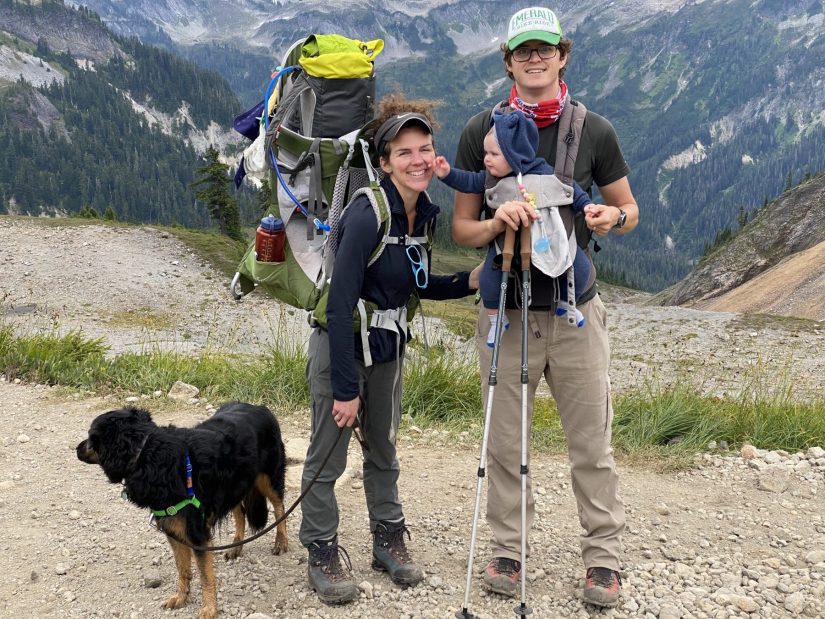
Kim Yazzie
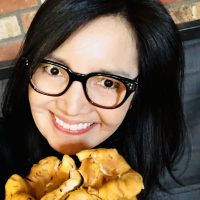 Dissertation
Dissertation
The shifting habitat mosaic in a coastal river and climate services in Indigenous communities
We tested the SHM in a free-flowing coastal river with a unique, high-resolution, record of habitat conditions and fish abundance of four Pacific salmonids. We also assessed the spatial and temporal variation of large wood to further understand the wood regime. Lastly, I characterized the availability and usability of climate services among tribes and non-tribal entities to understand the status of climate service provision to tribes and identified remaining gaps and opportunities to improve climate services.
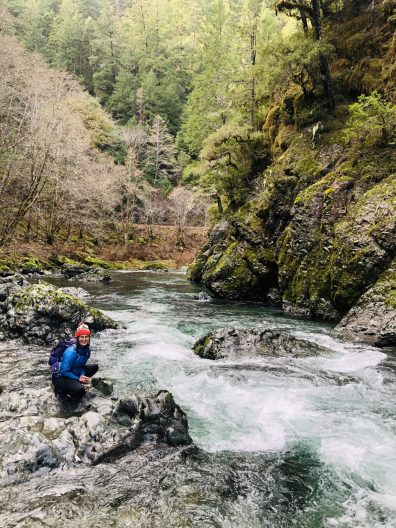 Advisers
Advisers
Daniel Schindler
What is your best/favorite memory during your time in SAFS?
Thursday seminar!
What is your favorite FISH class and why?
FISH 458: I really enjoyed learning about ecological models and conservation management outcomes in one course.
What is your go-to comfort food?
Popcorn I get to flavor myself!
What kind of things do you like to do when you’re not being a SAFS student?
Biking, perfecting my latte at home, baking, and travel!
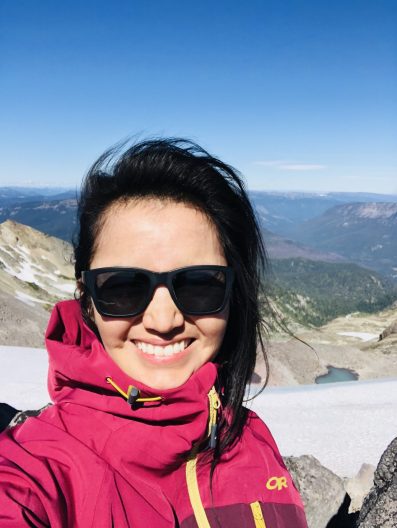
Do you have any accomplishments and activities while at the SAFS you would like to highlight?
Ford Foundation Dissertation Fellowship and National Science Foundation Postdoctoral Fellowship
Who would you like to thank/recognize and why?
I would like to thank my brilliant and steadfast advisor, Daniel Schindler. I thank Daniel for his unwavering support and encouragement to remember to step back and look at the big picture.
Do you have a favorite quote/saying/etc?
Perfection can be achieved by no one, because perfection is achieved from faults–yet faults tear away the perfection. -Mary G. Ross
